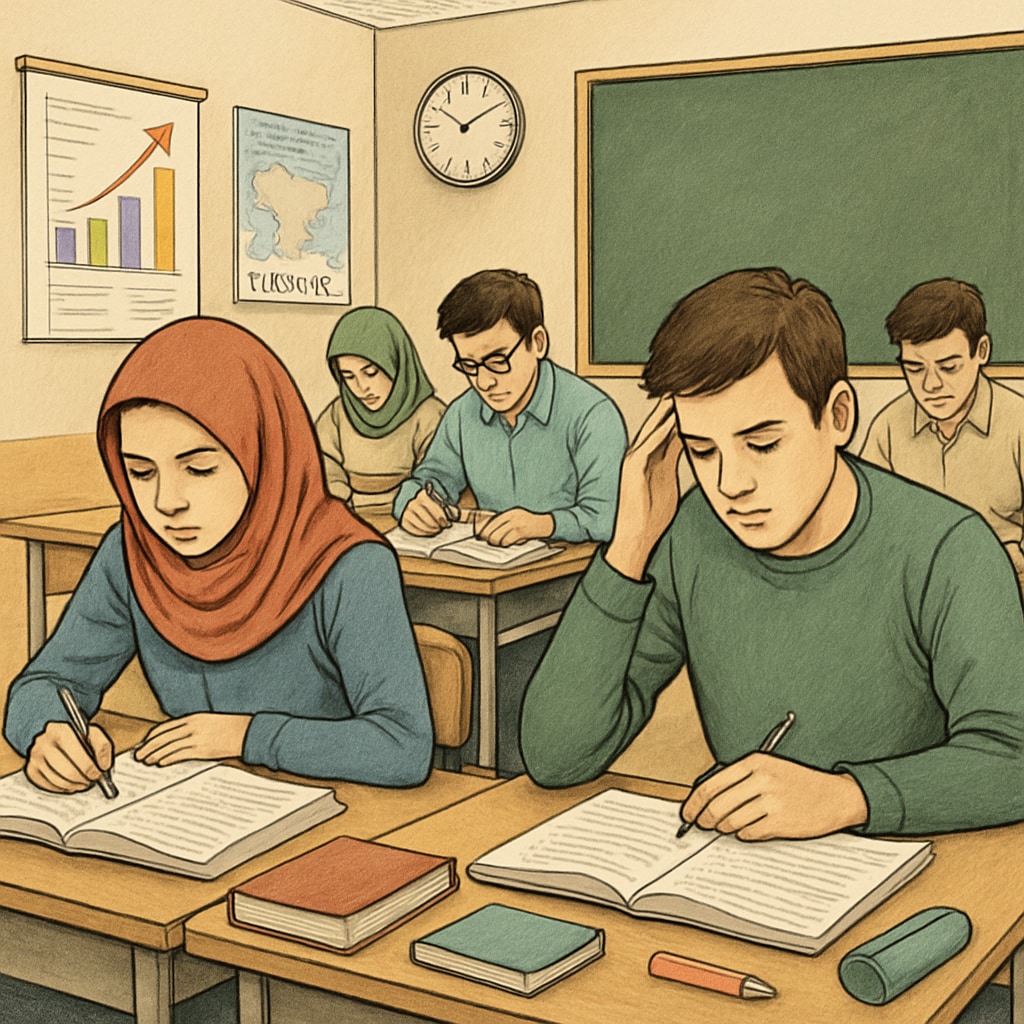The differences between Turkey’s exam-driven education system and the UK’s A Level approach highlight contrasting philosophies regarding student learning. While Turkey’s rigid focus on standardized tests creates immense exam pressure, the A Level model is designed to nurture student interest through flexible course options. By examining these systems side by side, we can uncover pathways to reform that empower students to unlock their full potential.
Challenges of Turkey’s Exam-Driven Education System
Turkey’s education system is characterized by a heavy reliance on centralized, high-stakes standardized exams to determine students’ academic futures. These include the High School Entrance Examination (LGS) and the University Entrance Exam (YKS), which are pivotal in deciding students’ access to prestigious schools and universities. However, this exam-centric approach has significant drawbacks:
- Creativity suppression: The focus on rote memorization and test performance leaves little room for creative exploration or critical thinking.
- High stress levels: Students face immense pressure to perform, leading to anxiety and burnout.
- Limited individualization: A one-size-fits-all system fails to consider individual talents or interests.
As a result, students often see education as a means to an end—passing exams—rather than a journey of discovery and growth.

The Flexibility of the UK’s A Level Model
In contrast, the UK’s A Level system offers a more flexible and personalized educational pathway. Designed for students aged 16-18, A Levels allow learners to choose subjects based on their interests and career aspirations. This freedom is a stark departure from Turkey’s rigid curriculum.
Key features of the A Level system include:
- Subject choice: Students typically select three to four subjects, tailoring their studies to their strengths and future goals.
- Depth of study: A Levels emphasize a deeper understanding of chosen subjects, fostering critical thinking and independent learning.
- Reduced exam pressure: While assessments remain important, the focus shifts from sheer volume to quality and understanding.
This model not only accommodates diverse learning styles but also cultivates lifelong learners who are better prepared for higher education and the workforce.

Reimagining Education: Lessons from A Level for Turkey
To reform Turkey’s education system, adopting elements of the A Level model could be transformational. By shifting from rigid, exam-focused frameworks to a more student-centered approach, Turkey can address the current system’s limitations. Potential steps include:
- Introducing elective courses: Allowing students to choose subjects based on their interests can enhance engagement and motivation.
- Reducing reliance on standardized exams: Incorporating coursework and project-based assessments can provide a more holistic evaluation of student abilities.
- Fostering creativity and critical thinking: Encouraging open-ended exploration and problem-solving can better prepare students for real-world challenges.
Implementing such changes would require a cultural shift within Turkey’s education system, prioritizing the needs and potential of students over institutional convenience.
Conclusion: A Student-Centered Future
The comparison between Turkey’s exam-driven education system and the UK’s A Level approach underscores the need for reform. By prioritizing student interest and reducing exam pressure, Turkey can create an education system that not only prepares students for tests but also for life. Learning from international models like A Levels, Turkey has the opportunity to transform its approach, unlocking the full potential of its learners and paving the way for a brighter, more innovative future.
For more insights on education systems worldwide, visit authoritative resources like Wikipedia on Education and Britannica’s Education Overview.


